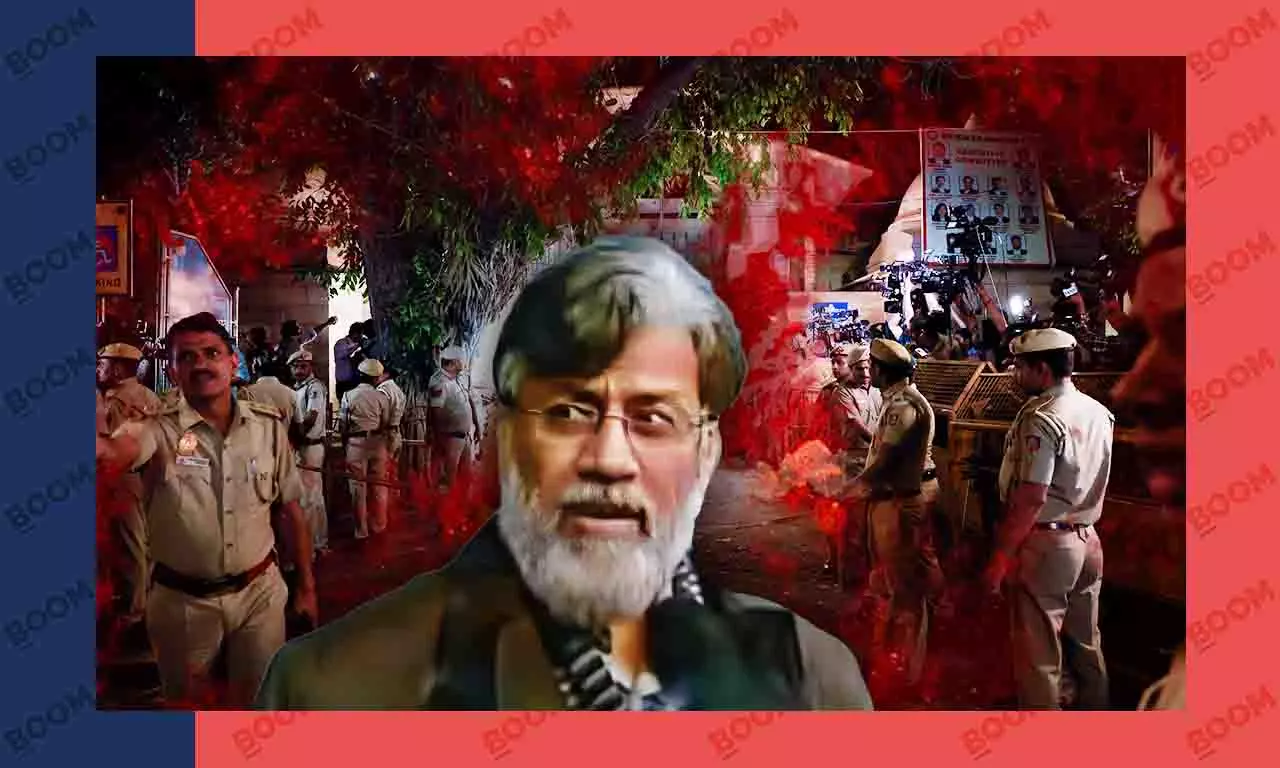NIA Granted Custody Of 26/11 Mumbai Terror Attack Accused Tahawwur Rana
Tahawwur Rana's extradition to India is a culmination of a 16-year-long legal process.

26/11 Mumbai Attack: Tahawwur Rana Extradited
- Tahawwur Rana has been extradited to India for his alleged role in the 26/11 Mumbai Terror Attack.
- The NIA has taken Rana into custody for 18 days to investigate his involvement.
- Rana is accused of conspiring with Lashkar-e-Taiba and David Coleman Headley.
A Delhi special court, late on Friday night, remanded Tahawwur Rana to 18 days in custody for his role in the November 26, 2008 (26/11) Mumbai terror attacks.
Rana, a Pakistani-Canadian national is alleged to be a key conspirator in the series of co-ordinated terror attacks spread out over four days from November 26 to 29, 2008.
In 2009, US authorities arrested Rana for his alleged role in the 26/11 terror attacks. On May 16, 2023, the District Court for the Central District of California ordered Rana’s extradition after all his appeals were rejected and all legal avenues available to him were exhausted. He was extradited to India, where authorities formally arrested him on his arrival at the Delhi Airport on April 10.
NIA officials produced Rana before a special NIA judge Charan Jit Singh at the heavily fortified Patiala House District Court post 10 p.m. on Thursday night. The proceeding held 'in camera', continued into the wee hours of Friday, ending at around 2 am, when the court remanded him to 18 days custody against the 20 days requested by the NIA.
The court order ended a 16-year-long process to extradite Rana from the United States of America and will begin the much-delayed trial against his role in the terror acts.
Rana who is now 64, was represented by Piyush Sachdeva, a legal aid counsel from the Delhi Legal Services Authority. Narender Mann represented the Centre as the special public prosecutor while senior advocate Dayan Krishnan was present as NIA's counsel.
BOOM looks at what we know so far.
What does the NIA say?
In 2011, the NIA in its chargesheet accused Rana, Headley, and seven others for the 26/11 attacks. The chargesheet — filed in the accused's absence—was based on evidence from the US Federal Bureau of Investigation (FBI).
Rana was booked under the provisions of the Unlawful Activities (Prevention) Act (UAPA) for terrorism and under sections of the Indian Penal Code (IPC); with death penalty as the punishment under both laws.
This trial in India is not the first time Rana would be in court to face justice. In 2013, US courts sentenced him to 14 years in prison for his role in the failed 2005 terror attack against a Danish newspaper which published cartoons depicting Prophet Muhammed. However, the jury acquitted Rana for his role in the 26/11 Mumbai attack.
“As part of those same criminal proceedings, Headley pleaded guilty to 12 federal terrorism charges, including aiding and abetting the murders of the six Americans in Mumbai and later planning to attack a Danish newspaper, and was sentenced to 35 years in prison,” stated a press release issued by the US Department of Justice (DoJ)
The Indian government has for several years, made concerted efforts to extradite Rana from the US. According to the NIA statement, Rana's recent attempt to acquire a stay against the extradition request was denied by a US court.
Incidentally, Sadanand Date, posted as NIA director general, was one of the first with this team to respond to the 26/11 attacks. Date who was then additional commissioner in Mumbai police, rushed with his team to the Cama and Albless hospital in the city.
Date's team encountered heavy firing from the terrorists but his team also managed to injure the perpetrators including Ajmal Kasab who was present at the hospital. Kasab was later arrested, making him the only terrorist to survive the attacks. According to an NDTV report, Date was later tasked with Kasab's transfer to Pune where the death penalty was carried out.
Also Read: Screengrab From Movie Revived To Pay Tribute To 26/11 Martyr
What is Rana’s role in the 26/11 terror attacks?
Tahawwur Rana, is originally a businessperson of Pakistani origin, holding Canadian nationality. He is reported to have consulted on immigration issues and at one time also served with the Pakistan Army Medical Corps.
Rana was arrested by US authorities from Chicago in October 2009, on charges of providing crucial logistical support to the terrorists involved in the Mumbai attacks, where the accused lay siege and held hostage several at prominent locations in Mumbai. The US DoJ in its April 10 statement, said Rana's arrest was a step towards seeking justice for the six US nationals and others killed in the attacks.
The US investigative agencies have alleged that Rana said the Indians "deserved it" about the 26/11 attacks. In an intercepted conversation with Headley, Rana allegedly hailed the nine slain LeT terrorists, asking for them to be conferred with the ‘Nishan-e-Haider’ – Pakistan’s 'highest award for gallantry in battle,' the statement further added.
The investigation by Indian security agencies found that Rana allegedly created a fraudulent cover for Headley, his childhood friend, allowing him access to scout for attack locations in Mumbai. Rana is said to have done this by opening a Mumbai branch for his immigration business, two years before the attacks, and making Headley the in-charge of the same.
Between November 26 and 29, 2008, 10 LeT terrorists carried out a series of coordinated attacks in Mumbai. The terrorists infiltrated the city by sea and dispersed to various locations in multiple teams laying siege to the iconic Taj Mahal Palace Hotel, the Oberoi Hotel for more than 60 hours. They also held multiple people hostage in the locations. The terrorist also indiscriminately opened fire and threw grenades on commuters at the Chhatrapati Shivaji Terminus (CST), and those present at Cama Hospital, the Jewish Chabad House in Mumbai, and two crowded eateries at Colaba Causeway.
The incident gripped Maharashtra's capital city in fear and left 166 dead including Mumbai police personnel including then Anti-Terror Squad (ATS) chief Hemant Karkare, Ashok Kamte, Vijay Salaskar and injured hundred others.
Also Read: Explainer: What Is The Unlawful Activities (Prevention) Act











